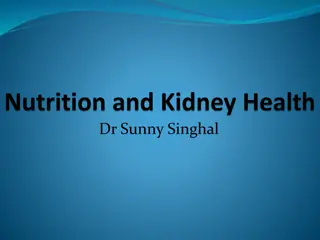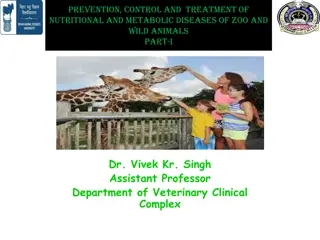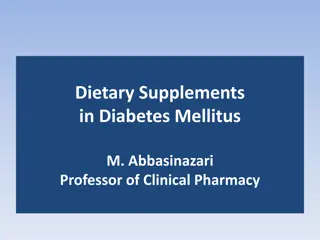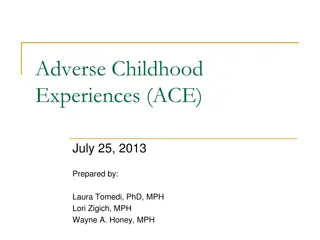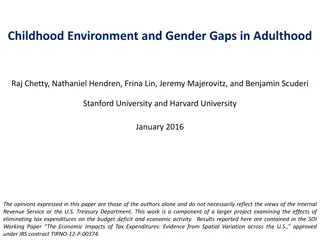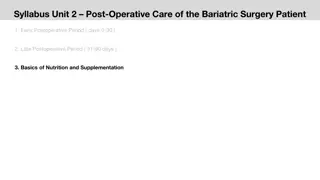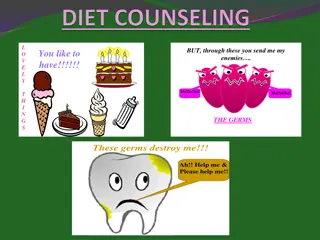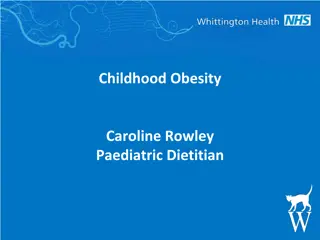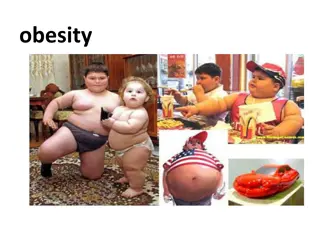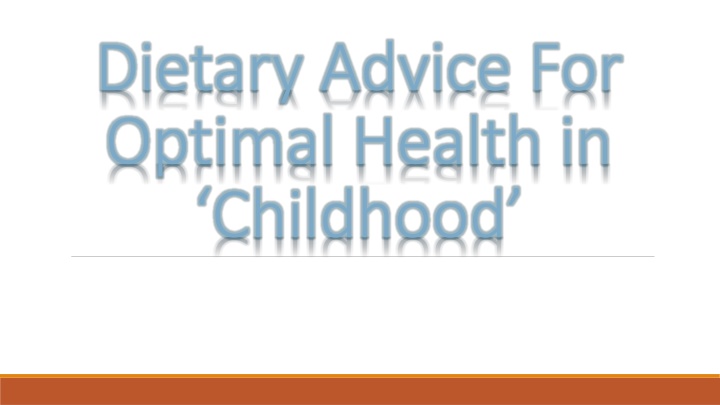
Childhood Dietary Advice for Optimal Health
Providing dietary guidance for neonates, infants, and children to ensure optimal growth and health. Learn about breast-feeding benefits, feeding recommendations, and nutrient requirements for a healthy childhood.
Download Presentation

Please find below an Image/Link to download the presentation.
The content on the website is provided AS IS for your information and personal use only. It may not be sold, licensed, or shared on other websites without obtaining consent from the author. If you encounter any issues during the download, it is possible that the publisher has removed the file from their server.
You are allowed to download the files provided on this website for personal or commercial use, subject to the condition that they are used lawfully. All files are the property of their respective owners.
The content on the website is provided AS IS for your information and personal use only. It may not be sold, licensed, or shared on other websites without obtaining consent from the author.
E N D
Presentation Transcript
Dietary Advice For Optimal Health in Childhood
What is Childhood? The time for a baby from birth until he/she becomes an adult. The more circumscribed period of time from infancy to the onset of puberty. From B irth to C hildhood Five Stages are there: 1.Neonate 2.Infant 3.Toddler 4.Preschool 5.School-age
Dietary Advice for Neonate - BREAST-FEEDING Breast-feeding should be initiated within an hour of birth instead of waiting several hours as is often customary. The first milk which is called "colostrum" is the most suitable food for the baby during this early period because it contains a high concentration of protein and other nutrient the body needs. Colostrum is also rich in anti-infective factors(IgA) which protect the baby against respiratory infections and diarrhoeal diseases.It also gives passive immunity to the baby. Supplementary feeds are not necessary. The regular milk comes on the third to sixth day after birth. The baby should be allowed to breast-feed whenever it wants. Feeding the baby on demand helps the baby to gain weight . It is very important to advise mother to avoid feeding bottles.
Dietary Advice for Infant - FEEDING OF INFANT B reast-feeding U nder any circum stances, breast m ilk is the ideal food for the infant. N o other food is required by the baby until 6 m onths after birth. M other m ilk contains 1.1 gm protein per 100 m l. The energy value of hum an m ilk is 70 kcals per 100 m l. A child w ho is breast-fed has greater chances of survival than a child artificially fed. P rolonged breast feeding does protect the infant from early m alnutrition and infectious diseases.
The diet of the children, the calorie requirements increase with age while proteins, calcium, iron, vitamin A and D are to be provided in sufficient amounts to account for increased requirements of growth. It gives the nutrients provided by each group from which a proper selection as per calorie requirements can be made. But unhealthy food habits as junk foods is increasing today.
Artificial Feeding : The main indications for artificial feeding are failure of breast milk, prolonged illness or death of the mother. It is crucial for the baby to be fed "breast-milk substitutes" - e.g.. dried whole milk powder, fresh milk from a cow or commercial formulae. Infants require an average of 100 kcal of energy per kg of body weight per day. ie., about 150 ml of milk per kg of body weight each day. The estimated protein requirement is about 2 g/kg of body weight during the first 6 months; it declines to about 1.5 g/kg by the end of one year. This works out to 13-14 g protein daily during the first year of life. In terms of calories, 8 to 10 percent of calories are given as protein. The carbohydrate requirement is about 10 g/kg of body weight daily; 4. After 4 months of age, undiluted boiled and cooled milk should be given.
Dietary Disorders: Protein Energy Malnutrition Marasmus Kwashiorkor Only Lack of proteins & calories Prominent skeleton Loss of appetite proteins are deficient Oedema, Occurs upto 1-1.5 yrs of age Muscles wasting, weakness Occurs after 1.5 yrs to 5 yrs Swollen stomach
THANK YOU... THANK YOU...

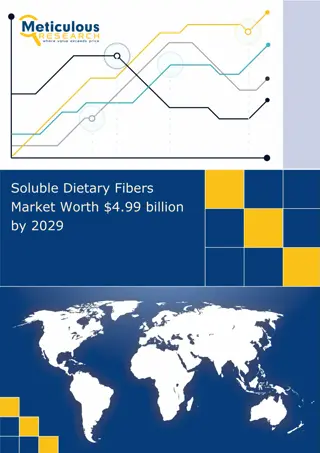
![Halal_Chicken_from_Brazil-_Ensuring_Quality_and_Authenticity[1]](/thumb/86918/halal-chicken-from-brazil-ensuring-quality-and-authenticity-1.jpg)

